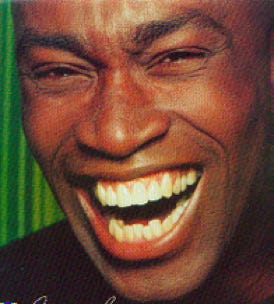Out of thought came the word
Sex & Relationships: Why Online Dating Apps Like Tinder, Bumble and Hinge Would Rather You Did Not Find Love
The business model for online dating app companies relies on single men and women actually failing to find their match, while remaining engaged on the platforms. By Ben Arogundade. November. 01, 2020.

IT WAS ONCE A MARK OF SHAME to admit that in your search for love you had resorted to the seemingly desperate measure of meeting “randoms and crazies” found on the Internet. But this stigma around online dating has now evaporated, as ever greater numbers sign up year-on-year, all concluding the same thing — that there is no other viable option for them to meet someone these days, within the busy, socially isolated lives we live.
FAILURE = SUCCESS ONLINE
But this realisation is tempered by the fact that the online dating app-owners are not aligned with our motive to find a partner online — a point that I discuss in my new guide to Internet dating. While the marketing of the online dating apps promotes the idea that their primary objective is to help us all find true love and live happily ever after, in fact, failure is the business model, just as it is in other industries founded on human fallibility, such as gambling or dentistry. Generally, they want us to not find a partner for as long as possible, because that is how they make their money, via subscriptions and in-app purchases. (Many female daters do not realise that men have to pay to connect with them, plus additional sums for special features). The apps first duty is not to lonely singletons looking for love, but to their company shareholders. Therefore they have no incentive for making their apps better — because better apps means better matches, which means more people leaving. Their ultimate goal is to stop people leaving — at least for a while. The apps are designed to create chaos, rather than order. It is precisely the fact that customers have to wade unsuccessfully through the endless mush that makes the business so lucrative for the dating app owners. Analysts predict that the global dating app market will be worth $12 billion by 2020. Match Group, which owns all the major platforms, has a market capitalisation of $2.3 billion. In 2018 it generated its biggest ever profit — nearly $500 million.
INTERNET SEX, NOT LOVE
If anything, the financial success of the industry is predicated on sex, not love — because if we find love, we leave, whereas if we (mainly men) perpetually seek hook-ups and one-night-stands, we stay. The people are the product, and so the companies need us to continually re-subscribe. One way they are trying to retain our patronage is by expanding their offering to allow people to use their platforms as places to meet friends or business connects, as well as to date. Consequently, the apps have now repositioned themselves as “social” rather than dating platforms. In 2019 Whitney Wolfe, CEO of Bumble, announced on CNBC that her company “is not a dating platform anymore, it is a connections platform.” ‘Tinder’ is also mutating from online dating into an entertainment app. In order to appeal to its core of 18-25-year-olds, it has just introduced ‘Swipe Night’, an interactive game in which users navigate an impending apocalypse on planet Earth, with matches then tailored to the decisions players make within the game itself.
These new ways of trying to persuade users not to leave the apps comes on the back of the fact that there is still no hard evidence that the apps actually work in forging long-term relationships for the majority of their users. Tim MacGougan, Chief Product Officer at dating app ‘Hinge’, confesses that, “81 per cent of Hinge users reported that they had never found a long-term relationship through a swiping app.”
The lack of convincing data suggests that the apps still have a long way to go in providing an effective love-matching service for their millions of lonely customers, and that the market may still have room for more workable alternatives. These alternatives are now on their way. Facebook for example, has now launched ‘Facebook Dating’. This may be good for the industry, if only to prevent Match Group from establishing a monopoly. And with Facebook now engaged, how long before Apple and Google enter? With these behemoths potentially looming, the existing dating apps will have to up their game, and make much needed improvements to their offerings if they are to survive in what is a transient and fickle market.
ABOUT ME
Hi there. I am a London-based author and publisher, specialising in fiction, non-fiction and online journalism. Discover more about me and my latest projects, at Ben Arogundade bio.
NEW GUIDE TO ONLINE DATING:
My Terrifying, Shocking, Humiliating, Amazing Adventures In Online Dating
Author Ben Arogundade recounts his journey as an online dater, during which time he was stood up, verbally abused, propositioned for sex and asked to be a father to an unborn child. Along the way he offers singles the secrets and best practices they need to know to boost the quality of their matches, and presents the latest strategies, research-based guidelines and innovations to take their online profiles to new levels of excellence. Get it now at Amazon, £9.99/$12.99.
More About Online Dating Apps
© White Labels Books, London Town 2025: Registered Office: 85 Great Portland Street, First Floor, London W1W 7LT





